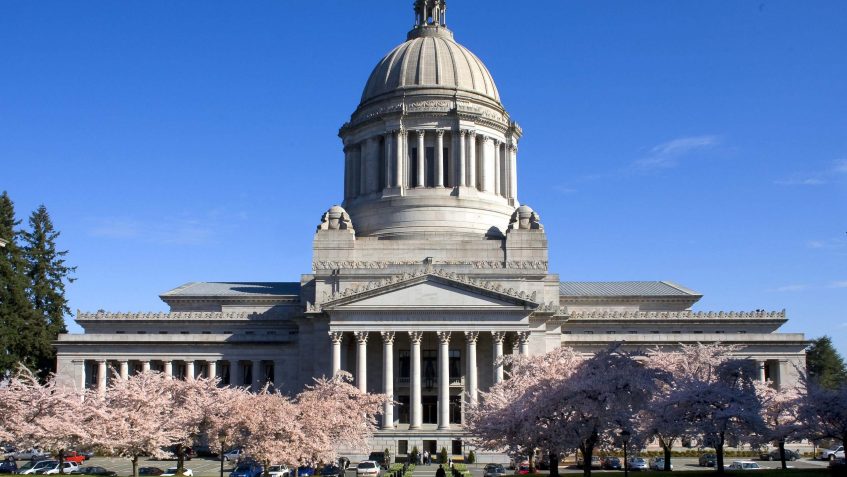Highlights include record-setting affordable housing construction and $5 billion plan for fish culverts
OLYMPIA – Senate leaders announced their proposal for the 2025-27 capital budget on Monday, which will fund construction and infrastructure projects across Washington state.
“When I began our work on the capital budget this year, I had a few bedrock principles in mind,” said Sen. Yasmin Trudeau (D-Tacoma), vice chair of the Senate Ways & Means Committee for the capital budget. “I wanted this budget to meet the basic needs of Washingtonians in all parts of our great state and to be responsive to our state’s most essential infrastructure needs. I think this budget accomplishes that mission. We are making major investments in social infrastructure like affordable housing, while also preserving existing housing so we don’t lose access to what we have already built while we strive to meet growing demands. We also focused on funding the core government responsibilities that might not have powerful political backers or big ribbon cuttings. This truly is a One Washington budget, and I am so grateful for the bipartisan team I had building it with me.”
“The Senate’s capital budget is a cooperative budget for the entire state. It lives within our means while doing a good job of addressing needs throughout Washington,” said 9th District Sen. Mark Schoesler (R-Ritzville), the Republican leader on the Senate capital budget. “Many K-12 education projects are funded. It strongly funds fish hatcheries and it is a good budget for water projects, as well as housing and other needs. Our capital budget has something for every part of our state.”
“The capital budget will positively impact all parts of our state,” said Sen. Mike Chapman, (D-Port Angeles), deputy chair for the capital budget. “This is a particularly great budget for rural economic development, and will result in more affordable housing, behavioral health access, job creation and support for nonprofit organizations. I’m so proud of this budget and the bipartisan work it took to get us here.”
The budget proposal makes major investments in important areas of government. Full budget details are online at fiscal.wa.gov — highlights include:
AFFORDABLE HOUSING — The budget includes $770 million for housing, including a record-breaking $600 million for the Housing Trust Fund, which directly supports the construction of affordable housing projects. The budget also invests in affordable housing units in transit-oriented development projects and expanding homeownership opportunities, connecting housing to infrastructure, and other programs including but not limited to housing for individuals with intellectual and developmental disabilities and prioritization for tribal housing.
EARLY LEARNING & K-12 EDUCATION — The budget appropriates $1 billion for K-12 education, including $202 million for building modernization for small school districts and tribal compact schools and $143 million for seismic safety projects. The budget also includes $100 million for early learning and childcare facilities.
NATURAL RESOURCES — The budget makes natural resources and public lands a major focus, with significant investments in salmon hatcheries, floodplain safety, water supply infrastructure, and more. The budget also appropriates $120 million for the popular Washington Wildlife & Recreation Program and $63 million for state parks.
As a part of the budgeting process, the Senate proposes moving the remaining responsibility for funding fish culverts from the transportation budget to the capital budget. Senate Bill 5804, a bipartisan bill paired with the budget, presents a funding plan to fulfill the state’s outstanding $5 billion obligation for fish passage replacement over a 10-year window. The budget proposes using some of the revenue generated for the Public Works Assistance Account to issue bonds, deposit those funds in a new Federal Injunction Salmon Habitat (FISH) account, and backfill the Public Works account with general obligation bonds. Money in the FISH account would be used for culvert replacements or other salmon and steelhead trout recovery projects, as directed by the federal courts and the tribes currently in mediation negotiations with the state.
“The state is mandated to remove barriers like culverts and support the recovery of salmon and steelhead — and we have a responsibility to follow through,” said Sen. Claudia Kauffman (D-Kent), the second sponsor of SB 5804. “As a Native woman and a member of the Nez Perce Tribe, salmon hold deep cultural and personal meaning for me. Fully funding this work isn’t just about meeting legal obligations — it’s about protecting something sacred and essential. This legislation reflects what’s possible when we come together with shared purpose and a commitment to doing what’s right for future generations.”
The budget is expected to be heard on Tuesday, April 1, passed out of the Senate Ways & Means Committee on Thursday, April 3, and voted on by the full Senate on Saturday, April 5. It will then be reconciled with the House’s capital budget proposal, and a negotiated compromise should pass both chambers before the end of the legislative session on April 27.


